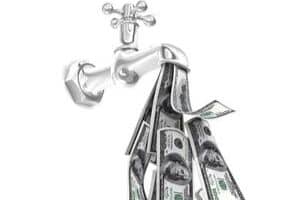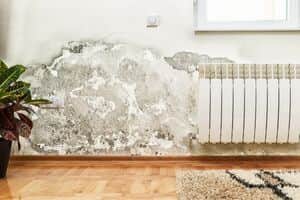Do You Have a Plumbing Leak?
Some people expect every home plumbing leak to be as immediately visible and dramatic as they are in the movies. However, not all of them leave homeowners with a fully flooded kitchen floor. Most of them are much more subtle in their appearance, mostly manifesting themselves in ways only someone paying attention would catch… the water bill.
But what are the other signs of a water leak aside from water consumption are there? This article will have the answers to save money, time, and frustration.
Monitor Your Water Bill for Warning Signs
Homeowners have a tendency to pay their utility bills without reading them closely if they don’t have them connected to their bank accounts for automatic withdrawal. Unfortunately, small plumbing leaks can seem to cause disproportionately large changes in monthly water bill charges.

Even the tiniest drips still waste water, especially as the leaks continue to increase in size. It is estimated that the typical American home wastes roughly 10,000 gallons of water annually due to plumbing leaks, which adds up to at least over $100 each year. If you notice an unexpected increase in your water bill, contact a plumber to evaluate your home for any signs of a plumbing leak.
Check for Mold Spots
 Over time, walls can start to change color. This may be due to direct sunlight, aging wallpaper, or just normal wear and tear and is normal. What is not normal is having circles of visible discoloration and wet spots on the wall. These areas can harbor and breed different types of mold and mildew, which can cause a variety of health effects.
Over time, walls can start to change color. This may be due to direct sunlight, aging wallpaper, or just normal wear and tear and is normal. What is not normal is having circles of visible discoloration and wet spots on the wall. These areas can harbor and breed different types of mold and mildew, which can cause a variety of health effects.Mold can actually start to grow and spread in just 48 hours, so it is important for homeowners to move quickly. Personal health symptoms of a mold infestation in the home include nasal congestion, wheezing/coughing, worsening of other lung diseases like asthma or COPD, and eye or skin irritation.
Long term exposure can lead to those symptoms becoming even more severe. One specific type of mold, black mold, can potentially even be fatal in the immunocompromised so it is better for homeowners to be safe rather than sorry when it comes to any obvious signs of the fungus.
Watch for a Change in Odor
Another way that homeowners can be vigilant against plumbing leaks is by paying attention to the odor in the home. There is a very specific smell to standing water, and it should be addressed immediately upon noticing it. Even if the plumbing leak is from a clean and not contaminated source, any standing water can grow and breed bacteria as well as molds and parasites.

This bacteria is what creates the telltale odor. Any change in the odor in the home, especially one that smells older or like mildew, should be reported to a local plumbing professional who should come evaluate the home to find the source of the leak and treat it accordingly.
Plumbing Experts Can Help
Gene Johnson Heating, Cooling, Plumbing and Electrical has been servicing the needs of the Seattle, Washington area since 1976. They offer both routine and emergency plumbing and HVAC services as well as potential financing. Working with the latest tools and techniques, they ensure accurate and detailed water leak detection services.





